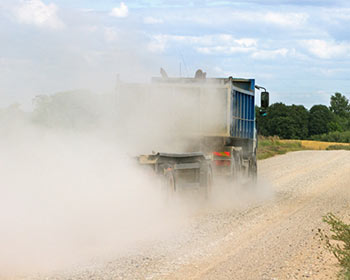MPC
MPC Research and Technology Transfer Focuses on the Disruptive and Long-Term Impacts of COVID-19 on Tribal Communities
Posted: May 19, 2021
 (This article was recently featured on DOTNET, USDOT's internal communications network.)
(This article was recently featured on DOTNET, USDOT's internal communications network.)
American Indian reservations have some of the highest COVID-19 infection and fatality rates in the United States and are poorly equipped to deal with pandemics, given the high rates of poverty and limited health care options. COVID-19 has disrupted school nutrition programs and social services on reservations, worsening the disparities in health care, income, and nutrition levels.
The Mountain-Plains Consortium (MPC), U.S. DOT's regional University Transportation Center in federal region 8, has a long history of working with tribal nations to improve road maintenance, highway safety, and community livability, and is now addressing the disruptive and long-term impacts of COVID-19. MPC's 2021-2022 research program includes work with reservations in North Dakota, South Dakota, Wyoming, and Utah and is focused on several interrelated and persistent problems:
- Limited access to food by tribal residents and the impacts of COVID-19 on child hunger. Researchers will examine potential solutions that concentrate on supply chain improvements and public transportation options to deliver food and transport children to community centers.
- Inadequate pedestrian access to clinics, community centers, and other essential services. The lack of sidewalks and pedestrian crossings on reservations forces residents to walk on roads with large trucks, poor signage, and less-than-ideal geometry.
- The impacts of dust from large trucks traveling unpaved roads on nearby residents and pedestrians. Road dust is especially concerning given the high incidence of COVID-19 on Indian reservations and the effects of particulate matter on weakened respiratory systems.
- The lack of GIS road planning and asset management tools to facilitate routing for food service delivery, emergency response services, and access to clinics.

